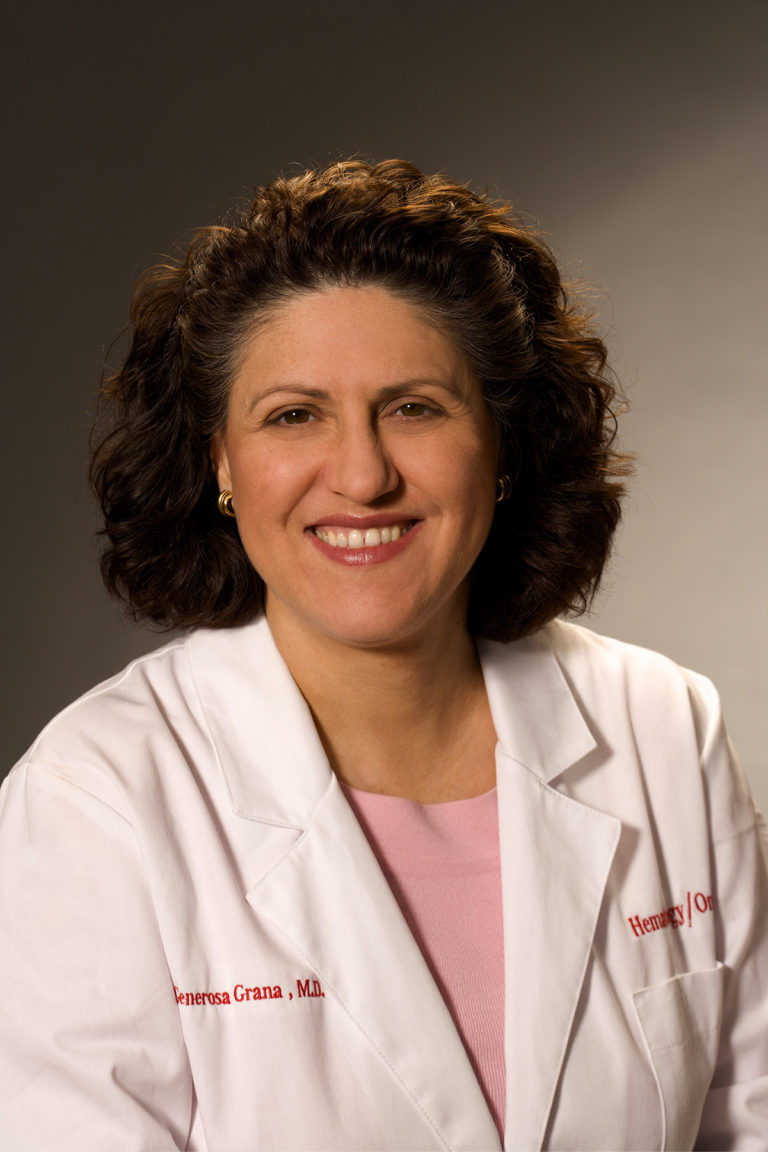
In 2005, Phyllis Markoff was 29 weeks into her pregnancy when she rolled over in bed one night and discovered a lump in her breast. She is pictured here with her son, Jacob, who is now a busy teen.

Generosa Grana, MD, Director of the MD Anderson Cancer Center at Cooper
Discovering that you’re pregnant and that you have cancer is a study in contrasts—it’s the happiest time in many women’s lives combined with one of the darkest and most terrifying.
“In the midst of the joy of pregnancy there’s this frightening diagnosis,” says Generosa Grana, MD, Director of the MD Anderson Cancer Center at Cooper. “The mom-to-be is worried about her own survival as well as the impact of her disease on the baby she’s giving birth to. What’s more, many doctors aren’t used to dealing with this difficult situation.”
To help relieve the fear and guide women and their doctors to make the most informed, effective treatment decisions, Cooper has established a Cancer and Childbirth Registry. With more than 420 women and 530 children in its database to date, the registry is the only one of its kind in the U.S. and one of only two in the world (the other is in Europe).
In 2005, Phyllis Markoff was 29 weeks into her pregnancy when she rolled over in bed one night and discovered a lump in her breast. After she received a breast cancer diagnosis from her surgeon, Markoff was referred to Cooper for cancer care.

Elyce H. Cardonick, MD, Director of the Cancer and Childbirth Registry
“I initially went through every gamut of emotions,” says Markoff, discussing her cancer diagnosis during pregnancy, “from terror, to hope, to believing this is what is happening to me.” It was her referral to Dr. Grana and then to Elyce H. Cardonick, MD, Director of the Cancer and Childbirth Registry, that made all the difference. The findings of the registry showed that patients can safely receive treatment during pregnancy and go on to have healthy babies.
“What we’re learning is that most types of cancer don’t require termination of pregnancy,” says Dr. Cardonick. “In fact, when I started the registry in 1997, 20 percent of doctors recommended termination for a pregnant patient with cancer; today, that’s down to 12 percent. Plus, we’ve learned that preterm delivery is not always necessary. So we’re able to reassure women that they don’t necessarily have to terminate or choose their baby over themselves.”
“The data are showing us how women can have surgery, x-rays and, amazingly, even certain types of full-dose chemotherapy during pregnancy without harming their baby,” she says. “By accumulating the data in one place, we’re able to see patterns and trends and reassure women and physicians about care decisions and the impact they have on child development, breastfeeding, and more.”
Markoff, who had two rounds of chemotherapy before delivering her son, says, “Dr. Cardonick visited me in the hospital. This kind of support—from the nurses, social workers, the entire team—makes all the difference.”

Phyllis Markoff is shown with her children, Jacob and Sam, and husband, Michael (not shown, their family dog, Cooper).
Dr. Grana also reminds women in the South Jersey region that Cooper has an entire team of cancer specialists—surgeons, oncologists, radiation therapists, genetic counselors—who are experienced in the management of cancer and pregnancy.
Dr. Cardonick has been following Markoff’s son for 13 years. Now a busy teen, he plays basketball and soccer like his peers. Markoff proudly states, “today Jacob is the picture of health.”
For more information about the Cooper Cancer and Childbirth Registry, email CancerInPregnancy@CooperHealth.edu or visit CooperHealth.org/CancerAndPregnancy.
